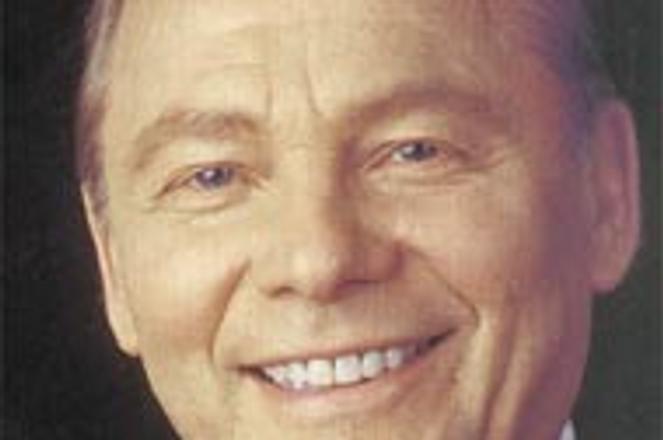Front-runner Rudolf Schuster.Courtesy of SOP
Slovak citizens will be given a chance to elect a president by the beginning of next year, according to the provisions of a law on direct presidential election currently making its way through Parliament.
"This is what we have promised to our voters," said Privatisation Minister Mária Machová, adding that electing a president would "bring Slovakia quickly to a political level on which we could take other steps for democratic development."
Slovakia has not had a president since Michal Kováč's term in office ended on March 2 this year. The president's constitutional functions have since devolved to the premier and speaker of parliament, currently Mikuláš Dzurinda and Jozef Migaš, respectively.
The candidate who is most likely to win the eventual presidential derby is Rudolf Schuster, leader of the SOP party, a minor coalition partner. Schuster will be supported by the governing parties, a deal which was struck during October coalition negotiations in return for the SOP's agreement to support the government.
However, not all deputies from coalition parties like the idea of Schuster's becoming President. František Mikloško, a deputy with the ruling SDK party, said he would find it hard to support Schuster. "Now, it's only my personal view, but I know how [party] members think," he said, explaining that members of his party were prosecuted during communism. Schuster, as one of the highest representatives of the former communist party and chairman of the last communist parliament before 1989, was an offensive symbol of the previous regime, Miloško said.
But Milan Čič, Chairman of the Constitutional Court, said he didn't think past membership in the communist party should be the decisive factor in electing a president. "There are more serious and moral requirements candidates should fulfill," he said. Čič, himself a Justice Minister in the communist regime from 1988-89, on November 11 confirmed that he would contest the presidential seat.
Former premier Vladimír Mečiar's name has also circulated for weeks in connection with the presidency, but officials from Mečiar's HZDS party stated flatly at a press conference on November 10 that Mečiar would not contest the vote. "Mr, Mečiar decided that he would dedicate himself to his work for the HZDS," said HZDS deputy Ivan Gašparovič.
Culture Minister Milan Kňažko, however, said that if Mečiar had decided to throw his hat in the ring, legal investigations of high-level political crimes might have required that Mečiar step out of the race. "I think that by February or March next year he may have other problems than contesting the post of president," Knažko said.
Grigorij Mesežnikov, a political scientist with the Institute for Public Policy, also downplayed the possibility of Mečiar's making an early return to high-level politics. "Mečiar doesn't have required majority and I don't think he would gain it in the upcoming months," he said.
The new law proposal for direct presidential elections was scheduled to be submitted to parliament on November 13, and to be approved by a shortened legislative process. But less than 24 hours before that deadline, coalition legal experts were still hashing out the terms of the law.
According to Ladislav Orosz, chairman of the Parliamentary Constitutional and Legal Committee, significant issues still remained to be solved. "They have not yet agreed on how the president will be dismissed, nor have they specified the laws that would need the president's signature," he said.
Two alternatives for dismissing the head of state were considered. The president could be dismissed either for high treason, based on a verdict of the Constitutional Court, or by a popular vote.
According to SOP legal expert Peter Kresák, the option of having Slovak citizens dismiss their president by public vote was unacceptable. "Nowhere in the world can a president be recalled by referendum," he said.
Another thorny question was whether or not a majority of votes cast were needed to elect the head of state. Although the reformed communist SDĽ party held out for a majority vote, Kresák's SOP team finally carried the day. "In the first round of presidential voting, we will require that candidates take a majority, but if no one wins an outright majority, whoever gets the most votes in the second round will become president," said Kresák.


